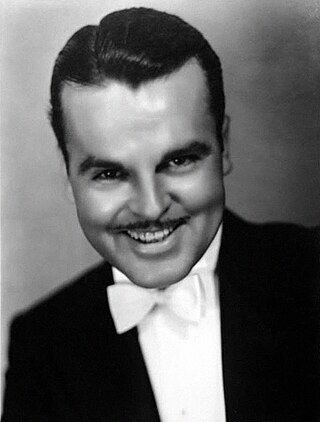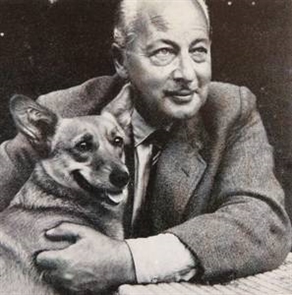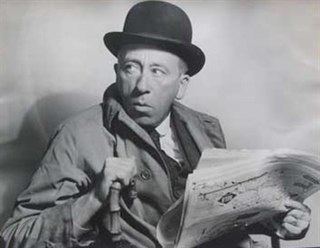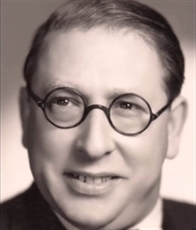External links
- Gordon Begg at IMDb
Gordon Begg | |
|---|---|
| Born | 14 January 1868 Aberdeen, Scotland |
| Died | February 1954 (aged 86) London, England |
| Other names | Alexander Gordon Begg |
| Occupation(s) | Film actor Stage actor |
| Years active | 1914 – 1954 (film) |
Gordon Begg (14 January 1868 – February 1954) was a Scottish stage and film actor. During the silent film era he made several films in Hollywood, before returning to Britain. He appeared as William Shakespeare in the 1930 British revue film Elstree Calling .

James Neil Hamilton was an American stage, film and television actor, best remembered for his role as Commissioner Gordon on the Batman TV series of the 1960s. During his motion picture career, which spanned more than a half century, Hamilton performed in over 260 productions in the silent and sound eras.

Henry Byron Warner was an English film and theatre actor. He was popular during the silent era and played Jesus Christ in The King of Kings. In later years, he successfully moved into supporting roles and appeared in numerous films directed by Frank Capra. Warner's most recognizable role to modern audiences is Mr. Gower in the perennially shown film It's a Wonderful Life, directed by Capra. He appeared in the original 1937 version of Lost Horizon as Chang, for which he was nominated for the Academy Award for Best Supporting Actor.
Sidney Gilliat was an English film director, producer and writer.

Classical Hollywood cinema is a term used in film criticism to describe both a narrative and visual style of filmmaking which first developed in the 1910s to 1920s during the latter years of the silent film era. It then became characteristic of American cinema during the Golden Age of Hollywood, between roughly 1927 to 1969. It eventually became the most powerful and pervasive style of filmmaking worldwide.
Alfred Junge was a German-born production designer who spent a large part of his career working in the British film industry.

Elstree Calling is a 1930 British comedy musical film directed by Adrian Brunel and Alfred Hitchcock at Elstree Studios.

Teddy Brown was an American entertainer and musician who spent the latter part of his life performing in Britain. His main musical instrument was the xylophone.

John Stuart, was a Scottish actor, and a very popular leading man in British silent films in the 1920s. He appeared in three films directed by Alfred Hitchcock.

Leslie Perrins was an English actor who often played villains. After training at RADA, he was on stage from 1922, and in his long career, appeared in well over 60 films.

William Gordon Harker was an English stage and film actor.

Jameson Thomas was an English film actor. He appeared in more than 80 films between 1923 and 1939.

John Longden was a British film actor. He appeared in more than 80 films between 1926 and 1964, including six films directed by Alfred Hitchcock.

Robert Edward Homans was an American actor who entered films in 1923 after a lengthy stage career.

Louis Levy was an English film music director and conductor, who worked in particular on Alfred Hitchcock and Will Hay films. He was born in London and died in Slough, Berkshire.
Geoffrey Faithfull B.S.C., was a British cinematographer who worked on more than 190 feature films from starting in the industry in the 1910s. Faithfull also directed two films: For You Alone (1945) and I'll Turn to You (1946). He worked on several films with Michael Powell and among his later work was responsible for the 1960 SF classic Village of the Damned.
Hal Gordon (1894–1946) was a British film actor. A character actor, he appeared in over 90 films in both comic and straight roles.
Harry C. Neumann of Chicago, Illinois, was a Hollywood cinematographer whose career spanned over forty years, including work on some 350 productions in a wide variety of genres, with much of his work being in Westerns, and gangster films.

Imperial Studios were the studios of the British and Dominions Film Corporation, a short-lived British film production company located at Imperial Place, Elstree Way, Borehamwood, Hertfordshire. The studios were active from 1929 to 1936, when they were destroyed by fire.
Norman G. Arnold was a British art director who designed the sets for over a hundred and twenty films.

John Hugh Elliott was an American actor who appeared on Broadway and in over 300 films during his career. He worked sporadically during the silent film era, but with the advent of sound his career took off, where he worked constantly for 25 years, finding a particular niche in "B" westerns.